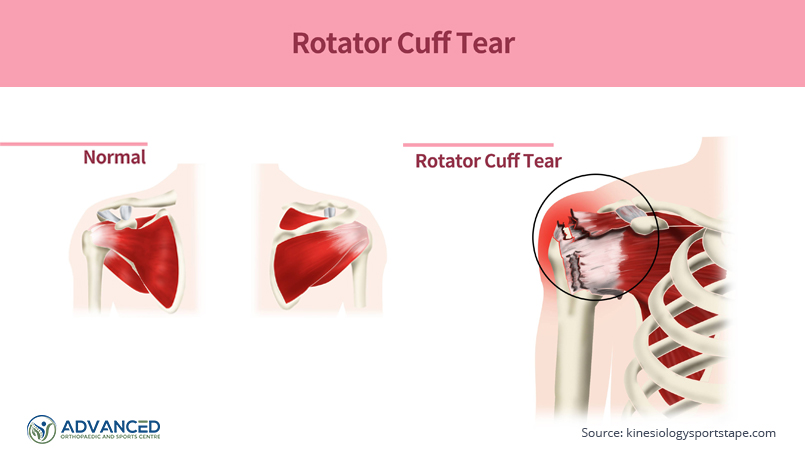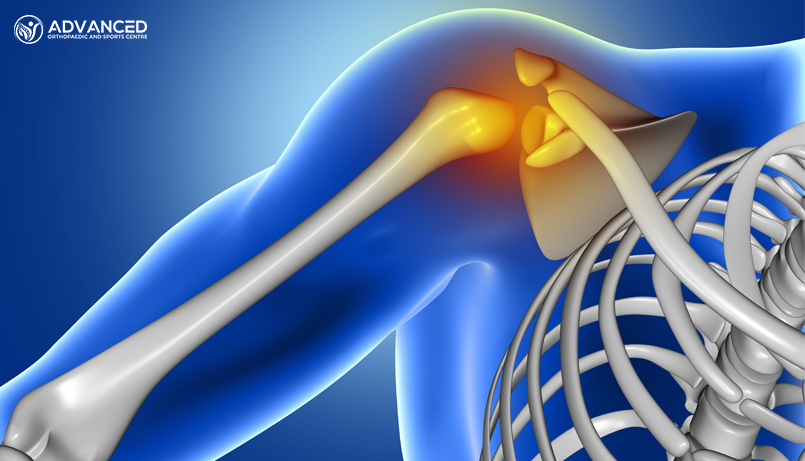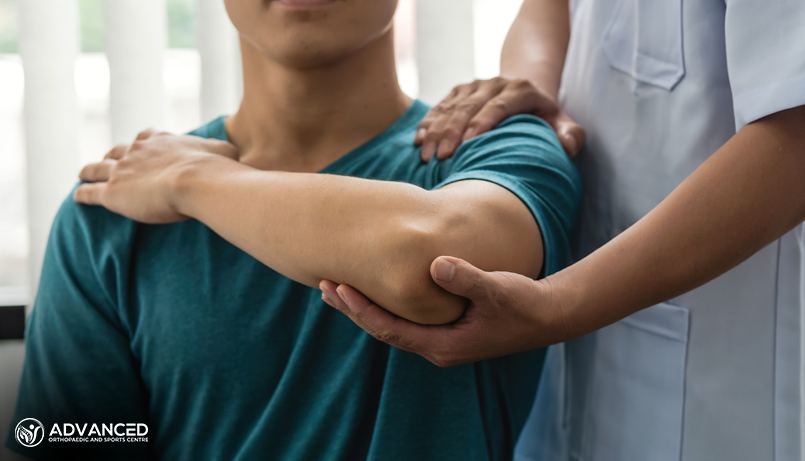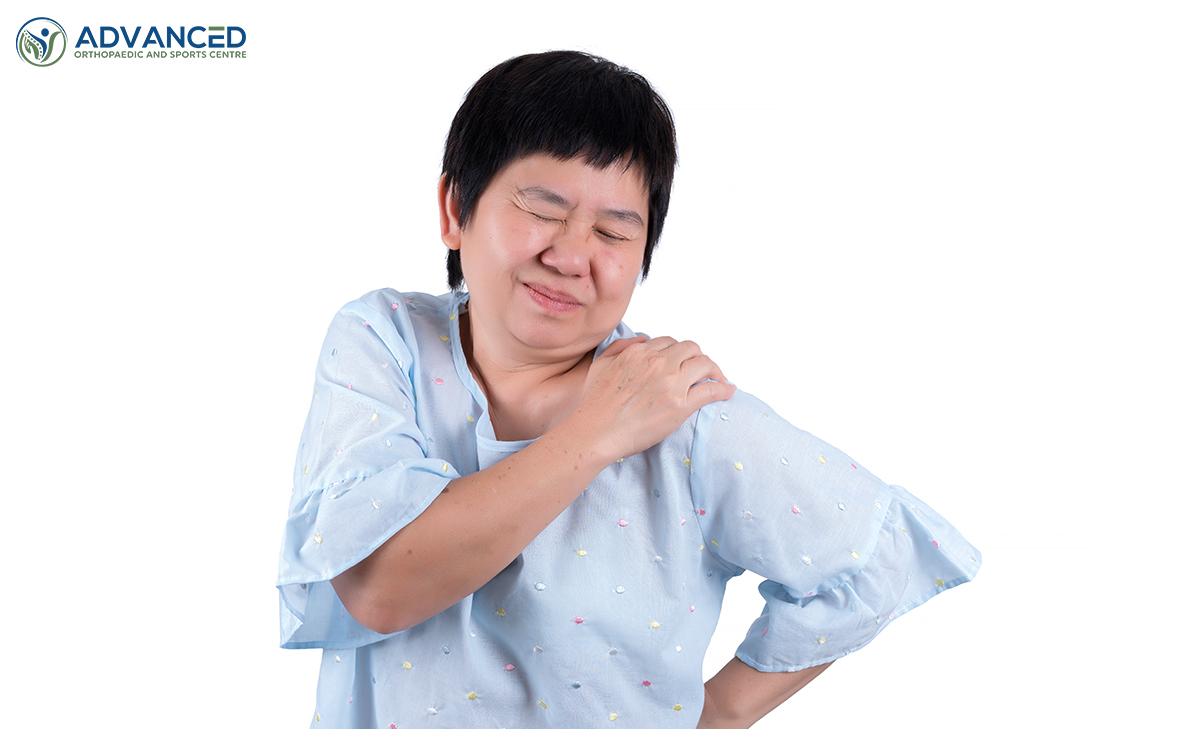Rotator cuff tear is one of the most common shoulder injuries as it does not just affect athletes, but can also occur in the average person due to natural wear and tear or repetitive movements required on certain jobs and daily activities.
If you suspect you are suffering from a rotator cuff tear but are unsure, it is advisable to seek help from an orthopaedic surgeon in Singapore for an accurate diagnosis so as to get appropriate treatment as soon as possible.
Before you do so, here is what you need to know about a rotator cuff tear, including the symptoms and treatment options available.
What is a rotator cuff tear?

Our shoulder is made up of three bones: the humerus which is the upper arm bone, the scapula which refers to the shoulder blade, and the clavicle also known as the collarbone.
The arm is kept stable within the shoulder socket by the rotator cuff, a group of four muscles coming together as tendons to form a covering around the head of the humerus; they also allow lifting and rotation of the arm with ease.
However, when a rotator cuff tear happens, the tendon (one or more) is no longer attached to the head of the humerus. This usually starts as fraying of the tendon and further damage can occur with repetitive or vigorous overhead movements.
A rotator cuff tear can be caused by injuries such as falling on an outstretched arm or lifting heavy objects with a jerking motion, or due to degeneration as a result of repetitive stress, lack of blood supply and bone spurs.
There are two types of rotator cuff tears:
- Partial tear – an incomplete tear that damages the tendon but does not completely sever it.
- Full-thickness tear – a complete tear where the tendon separates from the bone.
What are the symptoms of a rotator cuff tear?

Rotator cuff tears that happen suddenly due to an injury will usually cause intense pain, a snapping sensation or immediate weakness in the upper arm – these are telltale signs to seek medical attention as soon as you can.
However, rotator cuff tears can also develop slowly over time and you may brush the symptoms off as just a minor inconvenience. However, the pain will tend to increase as time goes by and may even cause difficulties in completing daily activities.
Typical symptoms of rotator cuff tears include:
- Pain in the front and side of the shoulder
- Sharp pain during movement
- Night pain when sleeping on the side of the affected shoulder
- Restricted shoulder movement
- Weakness when lifting or rotating the arm
- A crackling sensation when moving the shoulder in certain positions
How is a rotator cuff tear diagnosed?

The orthopaedic surgeon will discuss your symptoms and medical history with you to understand more about why you may have suffered a rotator cuff tear.
This is followed by a physical examination to assess any tenderness or deformity in your shoulder, measure your shoulder’s range of motion, as well as test your arm strength in various positions. The orthopaedic surgeon may also examine your neck to rule out other conditions such as a pinched nerve or arthritis.
You will most likely require a few imaging tests like X-rays, an MRI scan or ultrasound for the orthopaedic surgeon to confirm the diagnosis and determine the severity of the tear.
What are the treatment options for a rotator cuff tear?
If the fear of having to undergo surgery is stopping you from visiting an orthopaedic surgeon to get your shoulder treated, rest assured that non-surgical treatments will usually be recommended as long as the damage is not too severe.
Most non-surgical treatments can help to improve the shoulder symptoms; they include:
- Rest
- Modifying your activities, e.g, reducing overhead lifting activities
- Taking nonsteroidal anti-inflammatory medications
- Doing physical therapy to maintain shoulder flexibility and strengthening exercises
- Injections: this can include steroids to reduce inflammation and provide temporary pain relief, or platelet rich plasma injections to promote healing in small, partial tendon tears
On the other hand, if non-surgical methods do not help to relieve symptoms or the damage increases over time, an orthopaedic surgeon may suggest surgery.
A shoulder rotator cuff repair surgery can be done via shoulder arthroscopy; this is a keyhole procedure to reattach the torn tendon back to the head of the humerus to restore function.
Reach out to us today if you suspect that you are suffering from a rotator cuff tear and let our orthopaedic surgeon, Dr Poh, help you enjoy a better quality of life.

